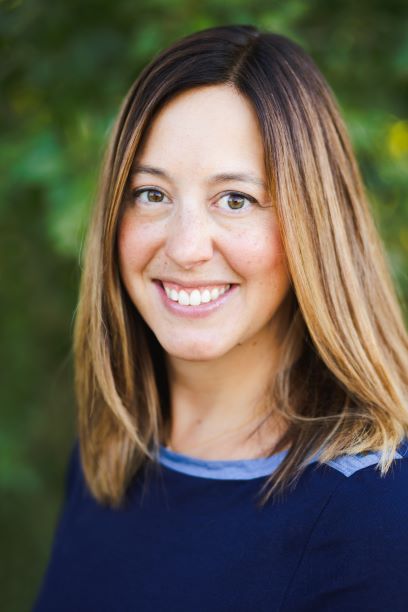What to Look for in a Clinical Supervisor?
By Shannon Heers
If you’re reading this article, you’re probably a therapist, counselor, social worker, psychologist, or some other type of clinician working in the mental health field. We are lucky that clinical supervision is such a big part of our continued growth and success as counseling professionals. Sometimes though, it’s not so easy to figure out who you want to help guide and mentor you along your professional development path.

Why Clinical Supervision for Counselors?
Clinical supervision works. One of the reasons why is because it pairs an advanced-level therapist who has training and experience in clinical supervision with a beginning, intermediate or advanced level clinician for learning, growing and self-awareness. Another reason is that the supervisory relationship can mimic the therapeutic relationship a therapist has with clients. Just as the healing in counseling comes from the therapeutic relationship, the learning in clinical supervision occurs within the supervisory relationship.
How to Identify What You Want to Get from Clinical Supervision

The challenge that many clinicians have is both what to look for in a clinical supervisor and where to look for one. Many therapists dabble in clinical supervision without proper training, experience and oversight. So, it’s up to you as a therapist to first figure out what you want to look for in a clinical supervisor.
I always suggest making a list, either in your head or written, about what you’d like to get out of clinical supervision. You can list things like:
- Case conceptualization
- Become an expert in a particular theoretical orientation
- Narrow down my niche/specialization
- Get emotional support for the hard work you’re doing
- Oversight of your clinical work
- Improve skills in areas such as assessment, diagnosing, treatment planning, or documentation
- Training in group counseling
- Explore a new therapeutic modality
- Further professional development
These are just a few examples, but you get the idea. After you know what you want to get out of clinical supervision, you can move onto the next step!
What Do You Want in a Clinical Supervisor?
Because clinical supervision is based in the relationship between therapist and supervisor, and because relationships take time to develop, you don’t want to make an impulsive decision about who to work with. It helps to know ahead of time what you want in a clinical supervisor. Again, making a list can be helpful, but for those of you that aren’t list makers you can still think in your head about this issue.
Here are some ideas of things you may want to look for in a clinical supervisor:
- Sufficient training and experience in providing clinical supervision
- Clinical experience in settings and/or populations similar to your
- A supervision style that matches with your personality and therapeutic style
- Theoretical modalities and orientations that you practice from and/or want to learn more about
- Offers both individual and group supervision options
- Other things that may be important to you such as social justice orientation, identity, physical location, virtual options, price, etc.
Are you getting some good ideas about what you want in a clinical supervisor? Great! Now, moving on to the next step!
What Type of Clinical Supervision is Best for You?

Yes, there are different types of clinical supervision! There are various models of providing clinical supervision, which you can ask a potential supervisor about also. For example, does your supervisor provide supervision based on a therapeutic model such as psychodynamic clinical supervision, CBT clinical supervision, or trauma-informed supervision? And is that important to you?
Also, what modality of supervision is best for you? If you’re provisionally licensed still, have the option of engaging in individual supervision only or a combination of individual and group supervision. Group supervision has additional benefits in that it connects you with others in a similar state of development, expands your learning, and lets you experientially learn about group work.
And if you’re fully licensed, then you have moved into the clinical consultation category, and there are even more options for clinical supervision then. You can seek out individual clinical consultation and meet with a supervisor anywhere from 1 to 4 times a month. Or you can look into group consultation, which is often more cost-effective and serves the additional purpose of finding your community, networking, and learning about things you normally wouldn’t be exposed to.
There are even specialty consultation services offered by many clinical supervisors. If you work in the substance abuse field you can look into addictions consultation, or if your caseload is primarily trauma clients you can seek out trauma consultation. Specialty consultation groups also exist, such as clinical consultation groups for neurodivergent therapists, psychodynamic group consultation, and trauma-focused groups.
So many options! So again, so the steps above and figure out what you want from your clinical supervisor and what types of services they can offer you.
Putting It All Together: What to Look for in a Clinical Supervisor
Now that you’ve put all your thoughts together about clinical supervisors and clinical supervision, you have a starting point. These are the things you want to ask about when you are interviewing potential clinical supervisors. A good clinical supervisor will also take into account your feedback and what your needs are in supervision, and will ask about that in your initial interview.
How can we help
If you are looking for a clinical supervisor or clinical consultant, check out our Clinical Supervisors’ bios to see if anyone at Firelight Supervision would be a good fit for you. And if not, no worries, now you have the tools you need to go out and find yourself a great-fit clinical supervisor!
Author Bio
 Shannon Heers is a psychotherapist, approved clinical supervisor, guest blogger, and the owner of a group psychotherapy practice in the Denver area. Shannon helps adults in professional careers manage anxiety, depression, work-life balance, and grief and loss. Follow Firelight Supervision on Instagram.
Shannon Heers is a psychotherapist, approved clinical supervisor, guest blogger, and the owner of a group psychotherapy practice in the Denver area. Shannon helps adults in professional careers manage anxiety, depression, work-life balance, and grief and loss. Follow Firelight Supervision on Instagram.



